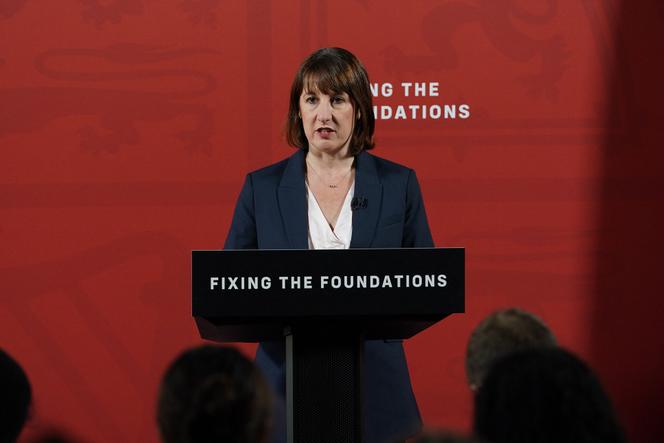


The tone was serious, the anger boiling just beneath the surface, obvious. "Upon my arrival at the Treasury three weeks ago, it became clear that there were things I did not know," new Chancellor of the Exchequer Rachel Reeves told the House of Commons on Monday, July 29. The Labour MP was referring to the £22 billion (€26.14 billion) hole she discovered in the state budget, left by the Conservatives in power since 2010. Expenditure on asylum seekers alone was £6.4 billion more than expected.
The Minister (and first woman to hold this position), immediately detailed the "necessary and urgent" measures she intends to implement to close this deficit, with £5.5 billion to be found by 2024 and over £8 billion by 2025. She will cancel certain infrastructure projects, including a £1.7 billion tunnel near the neolithic site of Stonehenge, as well as investments in the road and hospital systems. She will also shelve a planned reform in education, cut energy subsidies for senior citizens, and abandon the sale of the state's shares in the NatWest bank.
The administration will have to find £3 billion in savings but after more than a decade of austerity, it has little room for maneuver on this front. Then there's taxation. "Labour has promised not to touch VAT, income tax, social security contributions or corporation tax," said Simon Pittaway, an economist at the independent think tank The Resolution Foundation. They could, however, tackle capital gains tax, he believed. "These are taxed at between 10% and 28%, far less than income, which can be taxed at up to 45%," he said.
Inheritance tax – which reaches 40% for sums over £325,000 – is another government target. "It includes a significant number of exemptions that could be abolished, such as shares in certain types of company and commercial or agricultural property," said Claire Aston, in charge of the dossier at Tax Watch, a think tank specializing in tax issues. These two measures alone would raise £9.5 billion, The Resolution Foundation calculated.
In the City, these tax hikes, which will be confirmed when the budget is presented at the end of October, have not gone unnoticed. Financial advisers have been busy for several weeks, organizing information sessions and lunches with their clients to present tax optimization solutions.
Some can be set up on British soil. "Taking advantage of the lower capital gains tax rate, some self-employed people set up a business and receive dividend income from it," Aston said. Similarly, to avoid inheritance tax, some wealthy taxpayers choose to invest their wealth in agricultural land or forests, which are exempt, she said. Industrialist James Dyson is one of the most frequent users of this method.
You have 28.34% of this article left to read. The rest is for subscribers only.
